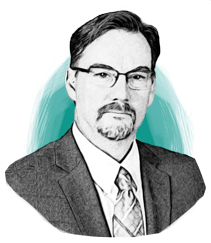May 29, 2018 PAP-Q2-18-CL-005
The Fujifilm Diosynth Biotechnologies (FDB) site in Texas was originally established as the National Center for Therapeutics Manufacturing (NCTM). The site was based on the concept of mobile cleanroom (MCR) technology, which was a new concept at the time, and ultimately developed into an early-phase, multiproduct, flexible, responsive contract manufacturing facility. The original site was expanded with the addition of two facilities, one (Building 100) for efficient monoclonal antibody production and the other (Building 200) for viral and gene therapy products. The latter facility is a multiproduct, multi-class manufacturing site based on third-generation MCR technology. FDB acquired the site, including all three production buildings, in December 2014.
Next-generation MCR technology provides a high level of flexibility in conjunction with high containment and rigorous segregation and control, allowing FDB to process multiple products that fall into several classes simultaneously. The modular nature of MCR technology also affords the ability to design production operations on multiple scales to meet the varying needs of clients as projects move from development to commercialization.
Rather than treat facilities as stick-built structures, mobile cleanrooms are intrinsically designed as pieces of equipment that are standardized and configurable. All of the critical components in MCRs are based on the same design concepts and use the same technologies (i.e., single-use bioreactors), reducing risk and opening fascinating opportunities.
By modifying the configuration of standard components, we are able to provide clients with a customized production environment in terms of the room grade, pressure cascade, air exchange rates, fresh/recirculated air distribution, etc. These custom configurations are designed following an extensive risk assessment to ensure that the environment efficiently and appropriately meets the needs of the project, with no over- or under-engineering.
Viral vectors are designed to infect different human cellular targets. A very high level of containment is required for the manufacture of these products. With state-of-the-art layered, redundant segregation and layered controls for containment — graded zoning and unidirectional flows, segregated HVAC zoning and pressurization, local engineering controls and captive equipment to avoid open work, transactional controls and local waste management — next-generation cleanrooms are an ideal solution.
Another important feature of our MCRs is the ability to ensure neutral conditions prior to the start and following the completion of each client project. Each MCR is equipped with a vaporized hydrogen peroxide (VHP) system that allows sanitization of the entire room and all of the equipment. While some in the industry feel that this approach is a conservative one, at Fujifilm Diosynth Biotechnologies we believe that this capability is critical to achieving success in advanced therapy manufacturing.
Having established advanced facilities for next-generation therapy production, FDB is now focusing on the development of advanced tools for cell culture and downstream processing. We are not only developing technologies that will allow products typically produced using adherent cells to be manufactured using suspension cell culture, but also are installing 2000L bioreactors. With these additions, we are able to perform suspension cell culture, both fed-batch and perfusion, from the 100L to 2000L scales. We also continue to offer adherent manufacturing services.
The Texas site is being developed as a Center of Excellence for Advanced Therapies development and manufacturing. Fujifilm Diosynth Biotechnologies possesses robust capabilities in process development through late-phase and commercial manufacturing and from cell-line development through final product filling. We are excited to work with clients to accelerate their CMC timelines.

Thomas has over 2 decades of experience in biotechnology spanning discovery to commercialization. He has held positions of increasing authority responsible for development, technology transfer, validation, and operations. He has designed facilities for multiple companies, authored patents and presented extensively. He is active in BPOG and other organizations and serves on scientific advisory boards for developing companies. He currently serves on the FDBT leadership team and is responsible for TBF-100 manufacturing, late phase fill/finish, facilities, engineering, automation, validation and EHS.